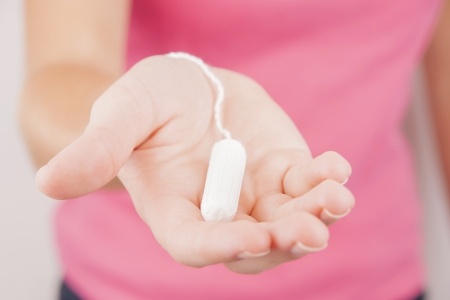
Girls between the ages of 9-15 are likely to experience your first menstrual cycle, or period. Entering into this next stage of puberty may have you feeling excited, scared, nervous or all of the above. Everything you are feeling is normal, but understanding what to expect can help.
You’ve probably noticed a lot of changes with your body. Your breasts have been growing and all of a sudden you have hair in new places. The same hormones that cause all of these transformations will eventually work together and result in your first period. For most girls, your period will begin one-two years after you begin developing breasts and growing pubic hair. You may also notice a white or yellowish vaginal discharge. This is completely normal and is a good sign that your first period may begin soon.
During the week leading up to your first period, you may experience premenstrual syndrome (PMS) symptoms. These can include stomach cramps, tender breasts, acne breakouts and irritability. This is due to changes in your hormone levels. Reducing caffeine and managing stress-levels can help.
On average, a woman’s period will result in 4 to 12 teaspoons of blood lost over three to seven days. The blood may appear bright red to brown depending on your period’s heaviness and where you are in your cycle. You may also notice small blood clots or pieces of tissue with your period. This is common, but if you should feel comfortable to tell your parents or gynecologist about any concerns. Every woman’s period is different, and you will eventually learn what normal is for you.
Choosing menstrual products for the first time can also feel overwhelming. Depending on how heavy your period is, pantyliners or heavier pads can catch any blood as it exits your body. Tampons are inserted into the vagina to catch blood before it leaves. If you decide to try tampons, you should use the smallest size required and change it regularly (at least every 4 hours).
If you are worried about starting your period somewhere other than home, you may decide to carry an emergency kit with a pad, tampon and an extra pair of clean underwear. In the event you are out and do not have anything with you, a friend or the school nurse may have an extra pad. When all else fails, toilet paper can be folded over several times to make an emergency pad that fits in your underwear.
Your first period is an exciting, new experience. There are no silly questions when your body is changing. Speak with your parents, gynecologist or another family member about any concerns or questions you may have.





